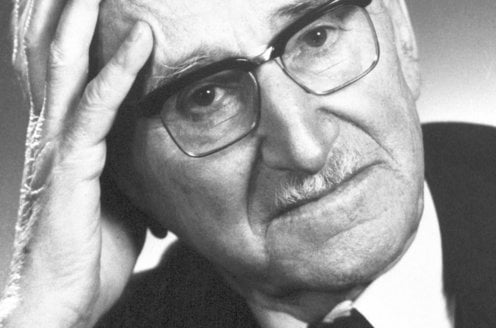Sublime
An inspiration engine for ideas
One person who was willing to risk political suicide was the visionary systems thinker Donella Meadows – one of the lead authors of the 1972 Limits to Growth report – and she didn’t mince her words. ‘Growth is one of the stupidest purposes ever invented by any culture,’ she declared in the late 1990s; ‘we’ve got to have an enough.’ In response to
... See moreKate Raworth • Doughnut Economics: The must-read book that redefines economics for a world in crisis
The Sveriges Riksbank Prize in Economic Sciences in Memory of Alfred Nobel 1974
nobelprize.orgnobelprize.org
those policies targeted at universal primary education have had tremendous progressive consequences over the long term, while others had less impact.
Luis M. A. Bettencourt • Introduction to Urban Science: Evidence and Theory of Cities as Complex Systems
Corporations collectively make investment decisions that cause business-cycle downturns. Poor people have more babies than they can support. Why? Because of what World Bank economist Herman Daly calls the “invisible foot” or what Nobel Prize–winning economist Herbert Simon calls bounded rationality.
Donella H. Meadows • Thinking in Systems: International Bestseller
of larger society. So that’s a very old battle in human history between the self-serving stories of an elite and the stories that can actually help serve a broader society. Part of what we’ve seen in our economics is that elites previously used to appeal to gods, to how our ancestors did it, to the natural order, etc., to make credible their
... See moreW. Brian Arthur • Complexity Economics: Proceedings of the Santa Fe Institute's 2019 Fall Symposium
The people around us influence how we perceive the global society. In other words, we use our own social milieu to make inferences about how people we don’t know live their lives. But this may backfire when we live in homogeneous social environments and rarely meet people living in different circumstances. English psychologist Rael Dawtry and his
... See moreJessica C. Flack • Worlds Hidden in Plain Sight: The Evolving Idea of Complexity at the Santa Fe Institute, 1984–2019 (Compass)
Mr. L. Prosser was, as they say, only human. In other words he was a carbon-based bipedal life form descended from an ape. More specifically he was forty, fat and shabby and worked for the local council. Curiously enough, though he didn’t know it, he was also a direct male-line descendant of Genghis Khan, though intervening generations and racial
... See moreDouglas Adams • The Hitchhiker's Guide to the Galaxy: The Illustrated Edition
He was twenty-eight when the master died; and this tragic end of a quiet life left its mark on every phase of the pupil’s thought. It filled him with such a scorn of democracy, such a hatred of the mob, as even his aristocratic lineage and breeding had hardly engendered in him; it led him to a Catonic resolve that democracy must be destroyed, to be
... See moreGP Editors • The Story of Philosophy
Social Darwinists proposed that all humans began by facing a fair struggle over scarce resources: money, jobs, esteem. Some gained the upper hand in this contest, not because of improper advantages or luck but because they were intrinsically better than those they outpaced. The rich were not better from a moral point of view. They were,
... See more